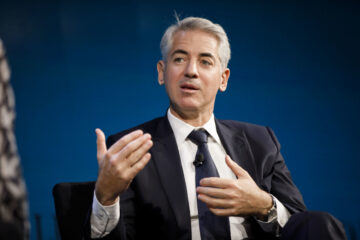For many working Americans, the ongoing task of planning and saving for retirement is understood as highly important — and it’s a reality that involves concerns about a number of specific challenges.
Personal finance radio host Dave Ramsey adds another element of unease about retirement finances as he explains his view that Social Security carries with it a few challenges of which beneficiaries may not be fully aware.
Don’t miss the move: SIGN UP for TheStreet’s FREE daily newsletter
First, most Americans recognize that they need to manage their finances sufficiently through their working years to ensure that their savings and investments last throughout their retirement — in ways that will provide them with the lifestyle to which they aspire.
Many workers are able to take advantage of 401(k) plans that offer contributions matched by their employers. If they are financially able, Americans can also invest part of their salary in a Roth IRA.
This is a smart additional investment because contributions made to Roth IRAs are made with after-tax money — and earnings from these plans also grow free of taxes.
Another consideration people preparing to retire need to decide on is their housing needs. Choosing whether to downsize, relocate or remain in their current home is an exercise that has major financial implications for people’s retirement plans.
Health care, including enrollment in Medicare, is also of primary importance when planning for retirement. Medical expenses such as prescription drug costs and long-term care insurance become essential as these needs naturally increase as people age.
There are many other pieces of the retirement-planning puzzle — including how Social Security payments factor into one’s expectations for retirement income.
But Ramsey wants to be sure people planning for retirement are aware of an important challenge facing Social Security itself.
Social Security cards are pictured with a U.S. $100 bill. Personal finance coach Dave Ramsey warns American retirees about Social Security solvency.
Shutterstock
Dave Ramsey raises concerns about the Social Security program
Ramsey takes some time to explain his thoughts about whether Social Security will be around when people retire during the course of the next decade.
“Don’t count on on it,” he warns. “Or don’t count on all of it.”
The personal finance coach cites a Social Security Administration (SSA) report detailing how the federal program is fully funded until 2034, when its solvency would run out as its trust funds become depleted.
The cost of one Social Security beneficiary is currently shared by 2.7 workers, according to the SSA. That ratio will move to 2.4 workers per beneficiary by 2035.
The reason for this major change is that, as the baby boomer generation will now be retiring by the millions, a strain on the system will follow.
More on Dave Ramsey
Ramsey reveals blunt new Social Security payment warningDave Ramsey discusses one big money mistake to avoid The surprising way your mortgage is key to early retirement
“In its current state, the Social Security system is a mess,” Ramsey wrote. “And you shouldn’t count on an inept government to fix it.”
But it’s important to note that this does not mean Social Security will not be able to provide any benefits at all. In fact, it is expected that the federal program will still be able to provide beneficiaries with about 80% of their monthly payment amounts.
There is also the possibility that sometime before the Social Security trust funds run out of reserves, legislative action will be taken to fully fund the program with currently expected benefits for its recipients.
Related: Dave Ramsey has blunt words on mortgage rates and buying a home now
Ramsey suggests using his 401(k) and Roth IRA formula
So while a person is working, Ramsey suggests taking a 401(k) match if their employer offers one. He suggests, in fact, using that only as a base from which to begin investing.
The Ramsey Show host recommends that workers invest 15% of their income in retirement savings. So employees should take the employer match, Ramsey advises, and then invest the remaining amount up to 15% of their income in a Roth IRA.
The Roth IRA allows investors to pay taxes on their contributions up front, so withdrawals taken after one becomes age 59-and-a-half are completely tax free.
Related: Veteran fund manager sees world of pain coming for stocks


